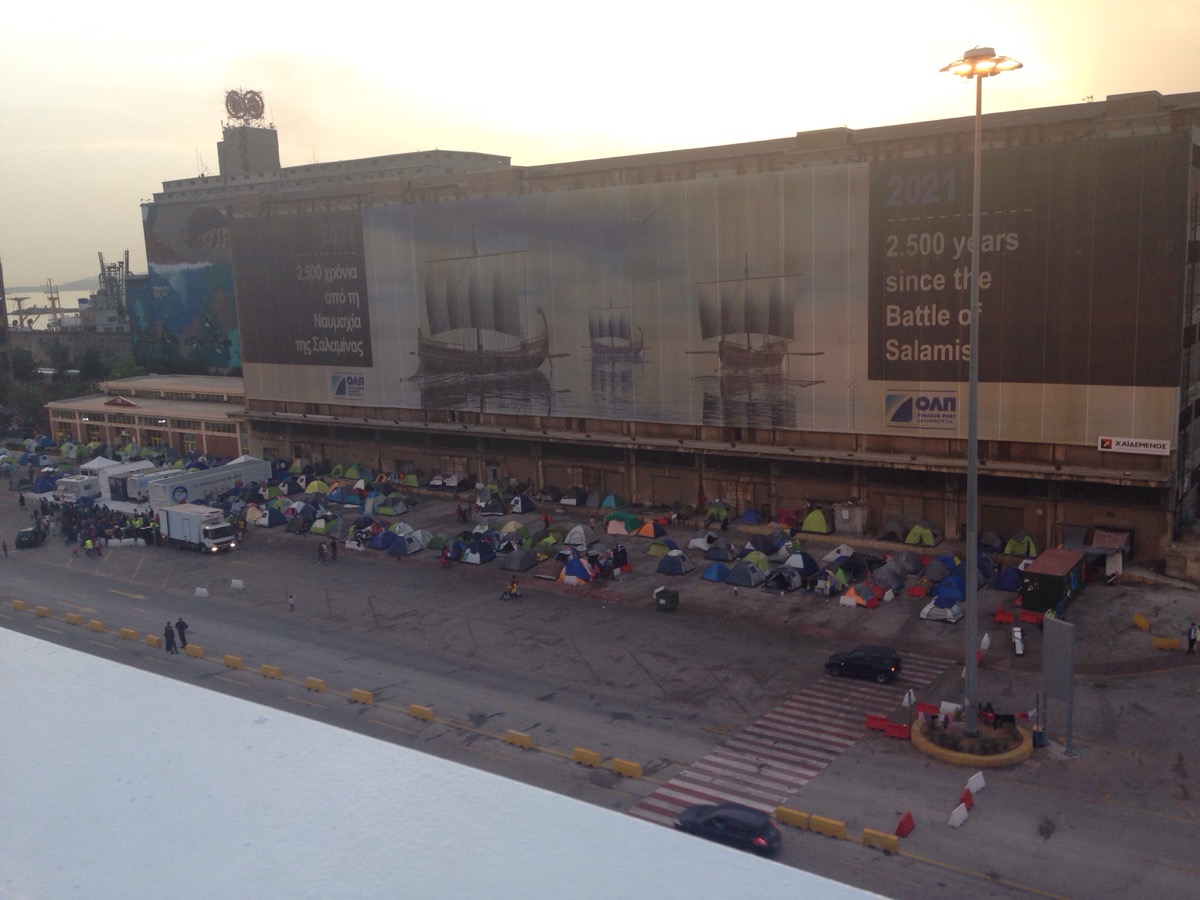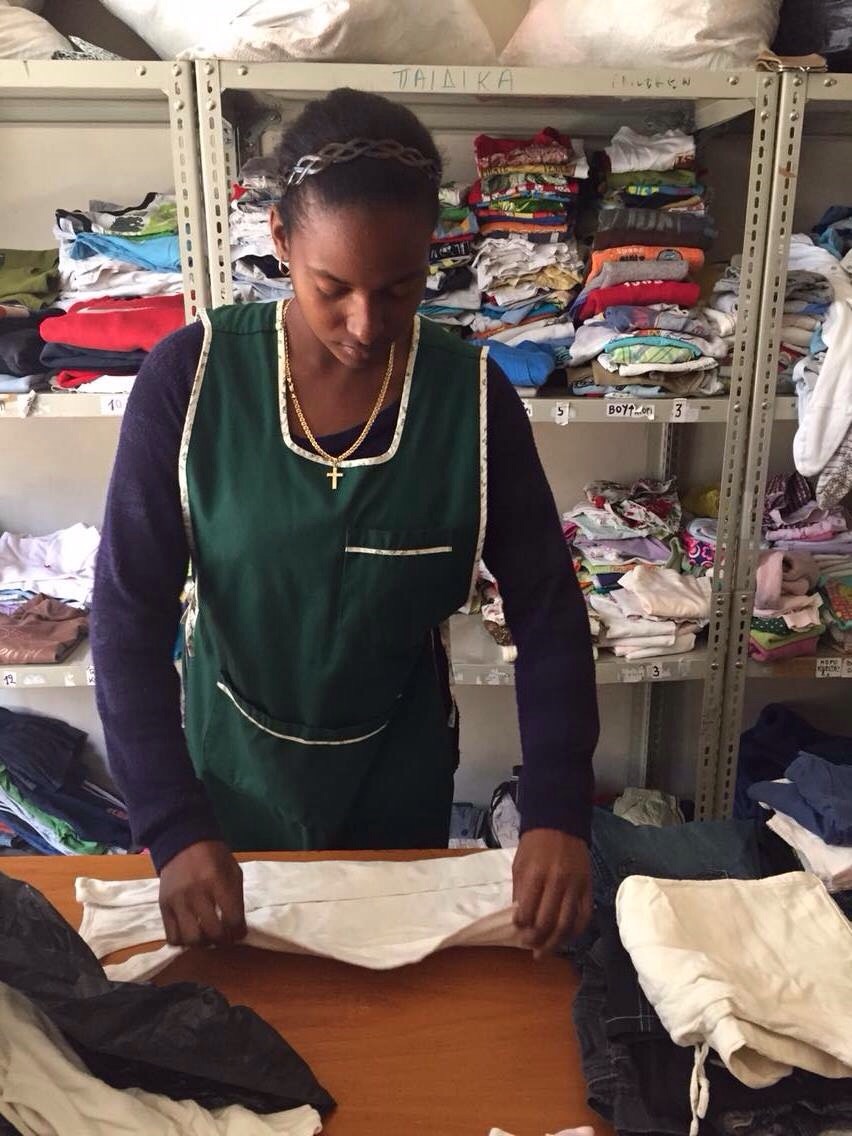I think that throughout this blog, I’ve made it clear how much I have come to love my host country. Greek culture, tradition, and people fascinate me, and my gradual assimilation into the ways of this country (albeit far from complete) has granted me the experience of a lifetime. Inherent in this culture is a love of people, and a general respect for all humanity. With the crisis at hand, refugees have been pouring into Greece from many different countries, most known, Syria and Turkey. While many other European countries have closed their borders to the refugees or set a cap on how many they will accept, Greece continues to aid those who are able to make it here, even in this period of economic hardship for themselves. Knowing this before I studied abroad attracted me to Greece, and now that I am here I have had the unique opportunity to volunteer with some refugees first hand.

A group of refugees in their tents at Piraeus Port.
There are several organizations here to help the refugees, from assisting with food and clothing to playing with the children and helping them become familiar with English. I chose to work with Caritas Hellas, a non-governmental organization located in Omonia not far from my home in Pangrati. Caritas Hellas has a soup kitchen and distributes clothing, toys, and medical information about women’s health. The area I work in depends on the day. When there are many volunteers I may end up in the clothing room, distributing clothes to those who need it. When there are few, the clothing room is closed and everyone helps in the soup kitchen. The managing volunteers do most of the cooking, and my job may be to help slice bread, fill up glasses of water, or when the refugees are let in, distribute the food or help to clean as they leave.
When there are many volunteers, we spill over into the next section, the clothing room. The problem with this is that when volunteers fail to come, those in need are unable to get clothing. When in the clothing room we go through bags of donations, sorting them into different racks by the ages of the children who can wear them. This makes things a little difficult, because ages can range for people within the same clothing size. When the clock hits 12 and mothers start to come in with their children, it can become very confusing and very crowded very quickly. This may be the most challenging part of my volunteering, besides the language barrier. At this point, I can get by with my Greek, but Arabic and the various other languages spoken by the refugees are beyond foreign to me. When helping a mother find clothes for her daughter she was trying to explain that she needed the shoulders covered. In hindsight I should have known this, but I didn’t understand. It took several minutes and a lot of gesturing for me to understand exactly what it was she was asking.

Me in the clothing room at Caritas.
Nevertheless, the appreciation and kindness of most of the people there who receive help is astounding. To see people so grateful for the bare necessities they need just to survive is a great reminder of how luck works in the world–the opportunities you have are greatly correlated to the circumstances you’re born into. As someone from a first world, power country where human rights are guaranteed, realizing that others have to fight, flee, or die for what I take for granted is incredibly humbling. It’s easy too, to feel guilty when looking back on the things I worry about–my classes, future, etc.– when watching people who have left everything behind, carrying their tents on their backs with their children, asking for help wherever they can get it. It’s been a great realization though, and a reminder to count my blessings that I will forever appreciate. Although my impact is small, I’m glad to be in a position where I can offer a helping hand when needed.



